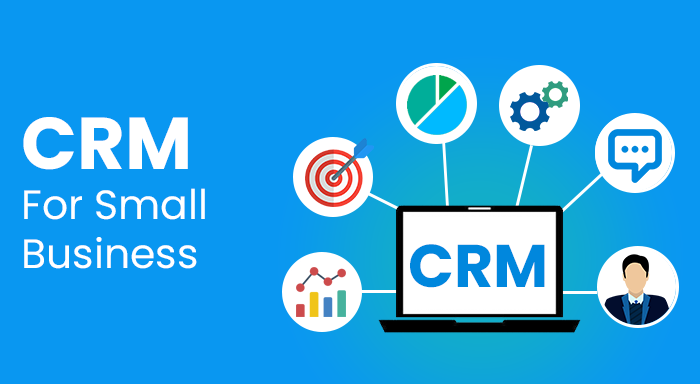Many organizations often grapple with underwhelming CRM platforms despite making substantial investments. What they have to keep in mind is that unleashing CRM’s true potential does not lie in starting all over again; it lies in systematically upgrading the present approach. Comprehending how to improve CRM strategy can revolutionize ordinary customer interactions into long-term relationships that ensure lasting business growth.
Contemporary CRM optimization needs a streamlined approach that takes several factors into consideration, such as process refinement, data quality, and integration of technology. Organizations that excellently manage these enhancements generally observe improved customer satisfaction, organized sales processes, and enhanced accuracy of forecasting. The below-mentioned strategies comprise proven methods that can aid in enhancing your CRM performance beyond just elementary features.
These methods work regardless of your organizational size. Irrespective of whether you are using enterprise-level CRMs or CRM for startups, you can elevate the impact of your CRM platform.
Let us quickly go over the basics first.
What Is CRM?
Customer Relationship Management (CRM) is a complete business strategy that integrates processes, technology, and data to handle and analyze customer communications throughout the entirety of the customer lifecycle. CRM platforms centralize all customer data, automate sales processes, and render insights that aid businesses to establish more robust relationships while ensuring strong growth in revenue.
Sophisticated CRM platforms serve specific needs of the industry. Businesses can go for specialized solutions such as CRM for manufacturing, which aids in streamlining production workflows and supply chain relationships. Likewise, CRM for healthcare prioritizes regulatory compliance and overall engagement of patients. On the other hand, accounting-driven CRM platforms incorporate financial information with customer management to organize client and billing data across numerous business sectors.
Streamline Data Management and Quality
The basics of any effective CRM implementation start with simple data optimization. Poor quality of data can make even the most advanced CRM platforms ineffective. It can not only lead to inefficient processes but can also cause missed opportunities. Consistent audit of data aids in recognizing duplicates, inconsistencies, and old information that can impact the overall effectiveness of the system.
Executing standardized protocols for data entry makes sure that all team interactions remain consistent. This involves setting up well-defined guidelines for formatting of contact details, customer status updates, and lead qualification criteria, etc. Teams must receive complete training on such protocols to ensure integrity of data throughout the routine operations.
Data validation platforms can automatically spot inaccurate entries. This can further avoid quality issues before they can disrupt the database and impact relationships with customers. Consistent cleansing activities, which include contact verification and duplicate removal, must be scheduled monthly to ensure optimal health of the database. Such practices greatly improve the overall accuracy of sales prediction and customer insights.
Integration and Automation Strategies
Strategic automation is an important element to understand if you are learning how to improve CRM strategy effectively. Automation of workflow minimizes manual tasks while making follow-up of processes consistent across all touchpoints of the customers. This involves task assignments, automated email sequences, and monitoring opportunities to ensure momentum without consistent manual intervention.
Incorporating present business platforms ensures a centralized ecosystem that minimizes data silos. Well-known integrations involve accounting software, email marketing solutions, and customer support platforms that render complete customer views. Such connections allow teams to access comprehensive customer histories and make data-driven choices across all interactions.
Sophisticated automation features can enable trigger-specific actions as per customer activities and patterns of customer behavior. For instance, automated alerts can keep sales representatives informed when leads visit their pricing pages or download brochures or other resources from the website. This timely data allows customer outreach that greatly enhances customer engagement and conversion rates.
Utilize Analytics for Strategic Enhancements
Transforming your data analytics demonstrates the next significant step in CRM improvement. Sophisticated CRM platforms like Salesforce create a vast volume of customer information, but not many organizations are able to accurately identify the best insights from the available information. Deploying complete analytics frameworks aids in recognizing trends, forecasting customer behavior, and streamlining sales strategies.
Mapping customer journeys through advanced analytics showcases opportunities and bottlenecks within the present processes. By assessing patterns of interactions, businesses can recognize which touchpoints drive the most conversions, and which touchpoints cause the highest amount of friction. This data can be useful in targeted improvements that improve overall sales effectiveness and customer experience.
Capabilities of predictive analytics aid in forecasting churn probability, customer lifetime value, and sales pipeline results. Such insights allow proactive efforts of customer retention and more precise allocation of resources. Teams can easily prioritize high-value prospects while executing retention strategies for customers who are at higher risk before problems evolve.
Performance Measurement and Monitoring
Setting up important performance indicators especially focused on effectiveness of CRM makes sure there is consistent improvement. Significant metrics involve source-based conversion rates, customer acquisition costs, and percentages of customer retention. Consistent tracking of such indicators aids teams to recognize effective strategies and areas needing more attention.
Sophisticated capabilities of reporting must track overall team productivity metrics alongside scores of customer satisfaction. This complete approach makes sure that improvements in efficiency do not just compromise the overall quality of services. Dashboards representing performance data in real-time ensure proactive adjustments and ascertain overall accountability across all members of the team.
Measuring performance with industry standards and benchmarks gives a great context for overall setting of goals and performance evaluation. Realizing how to improve CRM strategy involves identifying when present performance is matching expectations and when more enhancements are required. Consistent comparisons against benchmarks aid in ensuring competitive positioning and recognizing the latest trends and best practices.
Improve Retention of Customers Through Customization
Optimizing customer retention showcases the ultimate objective of CRM strategy enhancement. Customized communication as per the complete and latest data strengthens relationships and boosts loyalty. This comprehensive approach needs advanced segmentation strategies that cluster customers based on preferences, behavior, and value potential.
Personalized content delivery makes sure that customers get relevant data at optimal times. This involves customized product recommendations, personalized discounts and promotional offers, and educational content that focuses on particular customer requirements. Sophisticated CRM platforms can automate this customization while ascertaining authentic styles of communication.
Proactive and excellent customer service programs stop issues from escalating so that they do not cause any impact on the overall satisfaction levels. By tracking patterns of engagement and scores of customer health, teams can spot problems early on and ensure preventive solutions. This is a smart approach that greatly minimizes churn rates while also boosting customer relationships through proactive attention and care.
Conclusion
Mastering how to improve CRM strategy needs a complete approach that focuses on analytics integration, data quality, and optimization of customer retention. The overall success depends a lot on the continuous implementation of tried and tested techniques instead of occasional efforts or rigorous system overhauls. Organizations that dedicate themselves to strategic CRM enhancement generally experience major improvements in sales efficiency, customer satisfaction, and growth of the business.
The strategies explained in the blog showcase actionable methods for revolutionizing present CRM platforms into effective business assets. By prioritizing optimization of data, implementation of analytics, and customized customer engagement, organizations can get significant performance enhancement while elevating relationships with the customers that facilitate lasting success.
Author’s Bio

Hello, I am Ashish Dwivedi. I am a core CRM developer with 15+ years of experience in delivering efficient CRM solutions that drive business growth and efficiency. I specialize in creating extensions for SuiteCRM and SugarCRM. My most notable extensions include SuiteCRM Email to Lead, SugarCRM Mailchimp, and SuiteCRM BCC Archiver. I also have a CRM of my own called OutRightCRM.








